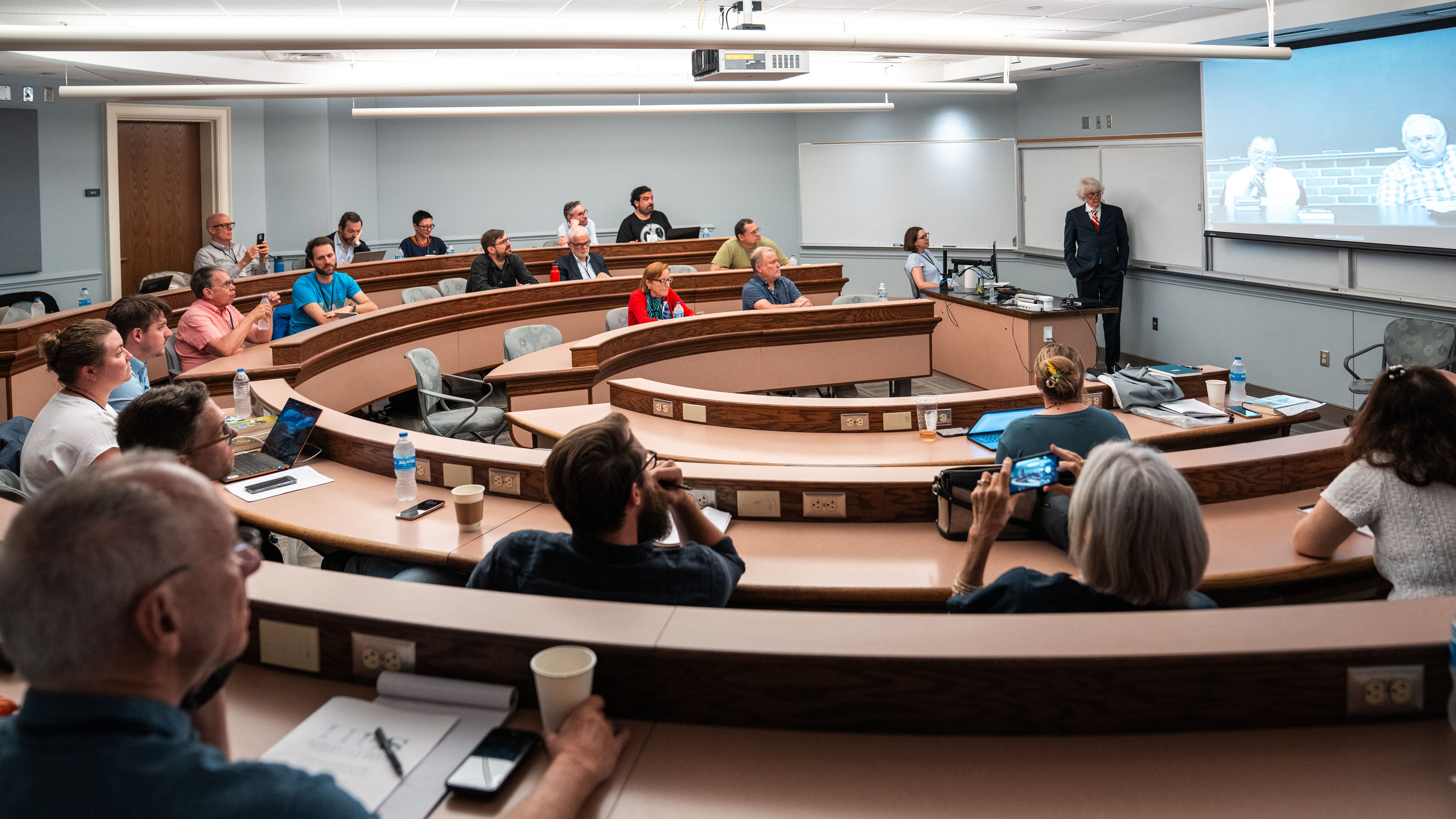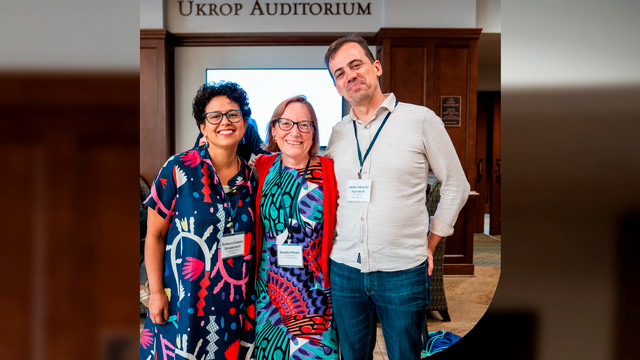UR hosts the 52nd History of Economics Society meeting
University News
An international group of economists — from across the U.S., Italy, France, Japan, Brazil, Chile, Colombia, Australia, Canada, Germany, the Netherlands, the United Kingdom, Hungary, Romania, Portugal, Russia, and Turkey — visited the University of Richmond in late June to participate in discussions and present their new research at the History of Economics Society’s annual meeting.
“They came long distances for this conference, and I think that’s a sign of how important it is to them,” said Sandra Peart, dean of the Jepson School of Leadership Studies, the day after the meeting ended. “The sessions were lively, the topics were interesting, the papers were good. People were overjoyed to be together because they see each other so rarely. It was spectacular.”
Peart serves on the executive committee of the Society, a prominent organization of professionals who study the history of economic ideas.
University of Richmond President Kevin F. Hallock, a labor market economist, delivered remarks at the welcome reception at the Federal Reserve Bank of Richmond, in a setting that overlooked the James River and the downtown skyline.
"For 52 years, this Society has convened scholars to understand our history and make new history along the way,” Hallock said to the group. “You all play a crucial role in helping people around the world understand how economic ideas and forces have shaped our past, and in how to use this understanding to interpret our present and guide our future.”
Serious discourse
This is the second time the University of Richmond has hosted the History of Economics Society annual meeting. The first time was in 1989.

This year, a 34-page program detailed the events held at the Robins School of Business, which co-sponsored the conference along with the Jepson School.
Istanbul University’s Kamal Tasiu Abdullahi spoke on “The Evolution of Adam Smith’s Economic Thought: From Classical to Digital,” at one of five sessions focused on the Scottish moral philosopher and father of modern economics.
Masazumi Wakatabe from Waseda University in Tokyo, delivered one of the two plenaries, “In Defense of the History of Economics.”
“Many economists don't think it's important to explore the history of ideas. They just take the ideas that were sort of settled on today, and that's what they work with going forward,” Peart said. “I would suggest that, in fact, not everything is settled and that new insights can be found and we’re still learning from the past.”
David Levy of George Mason University opened the final session, “Roundtable on the 50th Anniversary of the Buchanan–Samuels Exchange.”
“We’re going to start with some home movies,” he said, prompting laughter as he played a videotaped conversation between two older men. Even without an introduction, those in the room recognized renowned economists James Buchanan and Warren Samuels, who’d had a 30-year friendly feud over the role of the government in a free society and in economic policy.
“What's amazing about it is these two people, though they disagreed firmly, also had a lot of commonality and genuinely respected each other and were able to talk to each other,” Peart said. “It's kind of a model, I think, for how we should act as academics.”
On Peart’s bookshelf is The Street Porter and the Philosopher, a book she edited with Levy that includes a transcript of the Buchanan–Samuels 2004 conversation.
Young scholars in attendance
The Society named Peart the Distinguished Fellow of 2024, recognizing her lifetime of scholarship.
She created the Society’s Young Scholars Program in 2000. The initiative supports the research of graduate and post-doctoral students, providing them with funds to attend the annual meeting. The current 14 Young Scholars attended the Richmond event.
“All of us, early on, have had mentors who helped us and supported us. And to formalize that and make sure that young scholars don't feel isolated in their work, I think is important,” Peart said. “They're the future of the Society.”
Next year, the Society’s annual meeting will take place in Université Côte d’Azur in Nice, France.

